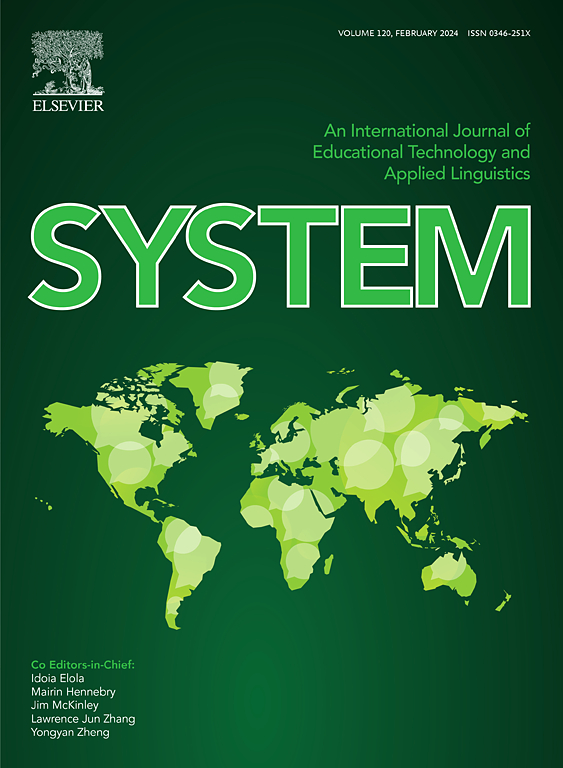Bacillus velezensis MZ09 alleviates DSS-induced colitis in piglets by remodeling the intestinal microbiota activating the SCFAs–GPR43–STAT3 pathway and suppressing NLRP3 inflammasome-mediated pyroptosis
IF 6.5
1区 农林科学
Q1 Agricultural and Biological Sciences
引用次数: 0
Abstract
Inflammatory bowel disease (IBD) is closely associated with intestinal microbiota dysbiosis and metabolic dysfunction. The aim of this study was to explore the protective effects and mechanisms of the probiotic Bacillus velezensis MZ09, which produces branched-chain short-chain fatty acids (BSCFAs), against the dextran sulfate sodium (DSS)-induced colitis in piglets. In this study, a DSS-induced piglet colitis model was established to explore the impact of MZ09. Pretreatment with MZ09 significantly alleviated the symptoms of colitis in piglets. For example, the disease activity index (DAI) score decreased, the length of the colon was restored, and splenomegaly was alleviated. MZ09 enhanced intestinal barrier integrity by upregulating the expression of tight junction proteins such as Claudin-1, Occludin, and ZO-1. Using 16S rRNA analysis, we found that MZ09 could remodel the intestinal microbiota. MZ09 increased the abundance of beneficial bacteria such as Firmicutes and Lactobacillus while suppressing the growth of harmful bacteria such as Proteobacteria and Escherichia-Shigella. MZ09 also increased the levels of short-chain fatty acids (SCFAs) in the colon. The increased SCFA content activated G-protein-coupled receptor 43 (GPR43), which increased the phosphorylation of signal transducer and activator of transcription 3 (STAT3) and promoted the production of the anti-inflammatory cytokine interleukin-10 (IL-10). Mechanistically, MZ09 mitigated mitochondrial damage via the STAT3/hypoxia-inducible factor 1α (HIF-1α) axis. This action inhibits nucleotide-binding oligomerization domain, leucine-rich repeat and pyrin domain-containing 3 (NLRP3) inflammasome-mediated pyroptosis, thus reducing the release of the proinflammatory cytokines IL-1β and IL-18. B. velezensis MZ09 alleviates DSS-induced colitis in piglets through multiple pathways, including gut microbiota remodeling, SCFAs–GPR43–STAT3 axis activation, and NLRP3 inflammasome-mediated pyroptosis suppression. These findings provide a new theoretical basis for the development of targeted intervention strategies for IBD, suggesting that MZ09 represents a potentially promising therapeutic agent for IBD treatment.velezensis MZ09通过重塑肠道菌群,激活SCFAs-GPR43-STAT3通路,抑制NLRP3炎症小体介导的焦亡,缓解dss诱导的仔猪结肠炎
炎症性肠病(IBD)与肠道菌群失调和代谢功能障碍密切相关。本研究旨在探讨产生支链短链脂肪酸(BSCFAs)的益生菌velezensis MZ09对葡聚糖硫酸钠(DSS)诱导的仔猪结肠炎的保护作用及其机制。本研究通过建立dss诱导仔猪结肠炎模型,探讨MZ09的影响。MZ09预处理可显著缓解仔猪结肠炎症状。例如,疾病活动指数(DAI)评分降低,结肠长度恢复,脾肿大减轻。MZ09通过上调紧密连接蛋白如Claudin-1、Occludin和ZO-1的表达来增强肠屏障的完整性。通过16S rRNA分析,我们发现MZ09可以重塑肠道菌群。MZ09增加了厚壁菌门和乳酸杆菌等有益菌的丰度,同时抑制了变形菌门和志贺氏杆菌等有害菌的生长。MZ09还增加了结肠中短链脂肪酸(SCFAs)的水平。SCFA含量的增加激活了g蛋白偶联受体43 (GPR43),增加了信号转导因子和转录激活因子3 (STAT3)的磷酸化,促进了抗炎细胞因子白介素-10 (IL-10)的产生。在机制上,MZ09通过STAT3/缺氧诱导因子1α (HIF-1α)轴减轻线粒体损伤。这种作用抑制核苷酸结合寡聚化结构域、富亮氨酸重复序列和含pyrin结构域3 (NLRP3)炎症小体介导的焦凋亡,从而减少促炎细胞因子IL-1β和IL-18的释放。B. velezensis MZ09通过多种途径缓解dss诱导的仔猪结肠炎,包括肠道菌群重塑、SCFAs-GPR43-STAT3轴激活和NLRP3炎症小体介导的焦亡抑制。这些发现为IBD靶向干预策略的制定提供了新的理论基础,提示MZ09是一种有潜力的IBD治疗药物。
本文章由计算机程序翻译,如有差异,请以英文原文为准。
求助全文
约1分钟内获得全文
求助全文
来源期刊

Journal of Animal Science and Biotechnology
AGRICULTURE, DAIRY & ANIMAL SCIENCE-
CiteScore
9.90
自引率
2.90%
发文量
822
审稿时长
17 weeks
期刊介绍:
Journal of Animal Science and Biotechnology is an open access, peer-reviewed journal that encompasses all aspects of animal science and biotechnology. That includes domestic animal production, animal genetics and breeding, animal reproduction and physiology, animal nutrition and biochemistry, feed processing technology and bioevaluation, animal biotechnology, and meat science.
 求助内容:
求助内容: 应助结果提醒方式:
应助结果提醒方式:


